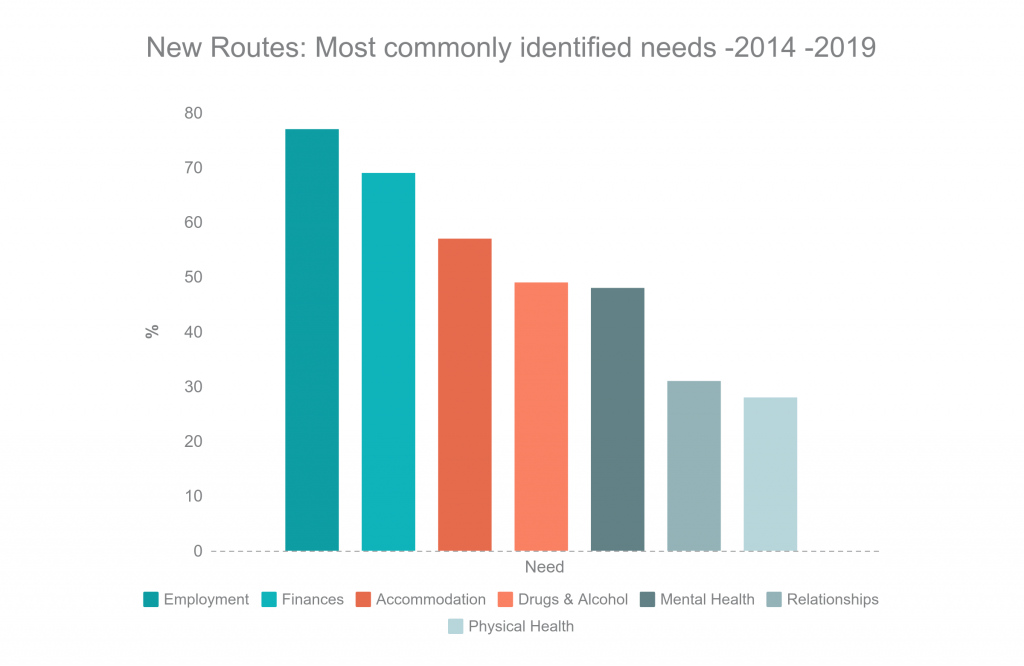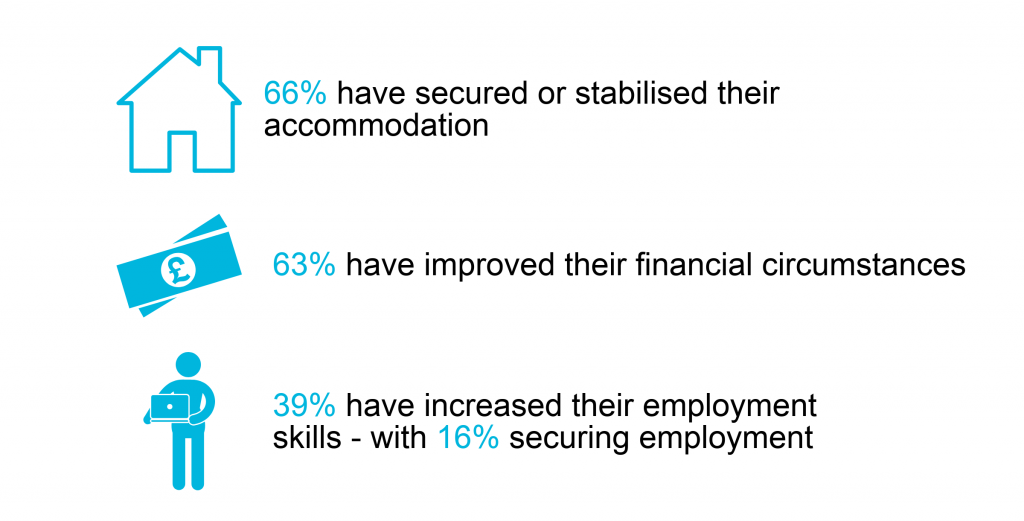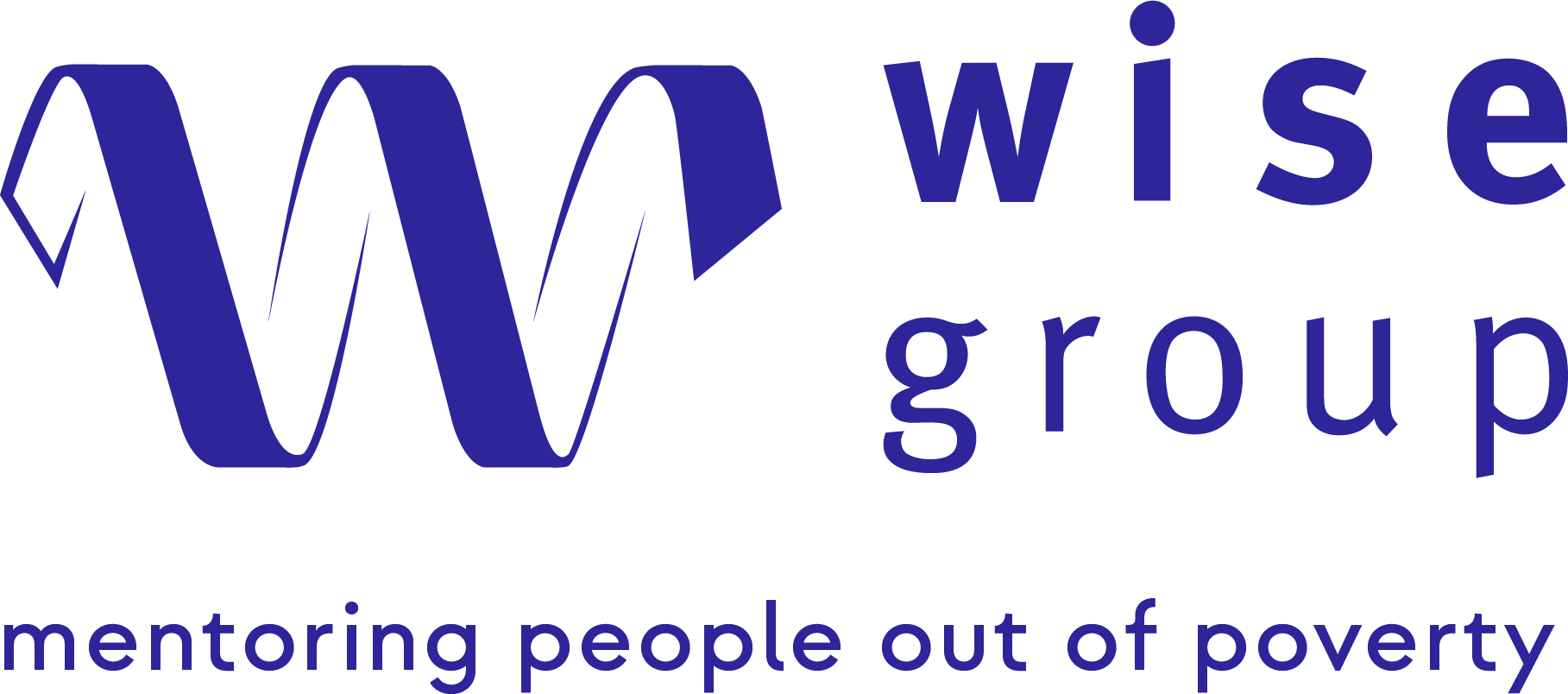The nationwide New Routes mentoring journey follows a standardised model that’s adapted to each individual – blending consistency and professionalism with a person-centred approach. To ensure customer needs are identified and addressed, we use a holistic baseline assessment tool at the start of the journey – which is the updated as the journey progresses.
The result is an accurate and robust quantitative dataset showing the progression of nearly 4,000 customer journeys in the last 5 years. This statistics bulletin looks at the most common identified needs and their outcomes.
The most common identified needs: Employment, Finance, and Accommodation

Employment is the most commonly identified need with 77% of all customers citing it as at least a minor problem in their lives – and 55% saying it is “extremely problematic”. Accommodation is an identified need for 57% of customers, with 33% claiming that they will be facing an “extremely difficult” housing situation upon liberation – requiring crisis intervention because they will have no place to stay.
New Routes provides practical support to address identified needs
New Routes is a practical mentoring programmes – our mentors make tangible improvements to customers’ lives, hand-hold them, and provide advocacy support. Mentors create an action plan with the customer to address their needs and, over the course of the 12+ month journey, they support customers to achieve those goals. That’s why 50% of our customers tell us that their mentor is the single biggest factor in their improvements.

Improving employment prospects
With 77% of customers wanting to improve their employment prospects, there’s clearly an appetite to work when customers are released from prison – but only around 16% do make it into employment within 6 months of release. That’s because prison leavers face multiple barriers to employment.
Firstly, our mentors tell us that only 30% of customers are ready for employment within 3 months of release and over a third will take longer than 9 months due to drug and alcohol dependencies.
Secondly, many customers were long-term unemployed before they entered custody – which adds another significant employment barrier.
Thirdly, there are preconceptions about employing people with convictions – so we’re working closely with partner organisations to change those perceptions and provide support to employers who want to recruit people with convictions.
We’re founding members of Release Scotland – an organisation which facilitates peer support in practicalities and benefits of employing people with convictions – through which we’re working with employers to support their recruitment process. In support of the Scottish Government’s Noone Left Behind policy, we have worked with Disclosure Scotland to develop a training package which helps employers overcome unconscious bias and address risk perceptions of employing people with convictions. These training courses are run regularly or can be delivered on your premises.
Let’s talk
Few organisations gather the rich set of quantitative data we do. As part of the nationwide New Routes mentoring programme, we capture data on many aspects of the customer journey, the services customers engage with, and the progression they make. If you think there’s something we can do together to use the data to tell a story, get in touch.
Or if you want to know more about recruiting people with convictions, about the great work Release Scotland does, or to book a training session with Disclosure Scotland, email us.

